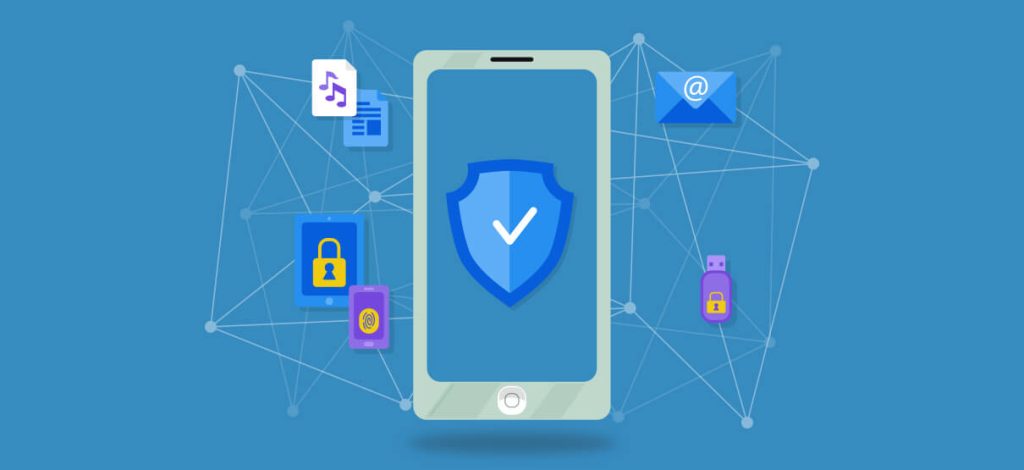With each year that goes by, it has been shown that the use of mobile applications grows significantly. Currently, there are more internet-connected mobile devices than people on the planet.
Online app shops like the Google Play Store, Apple App Store, Windows Store, and others are often used to distribute mobile apps. They are the main way of providing content and value to consumers of mobile devices throughout the world. Organizations and large corporations have embraced mobile apps to boost worker productivity and adapt to a younger, more connected workforce.
The Value of Mobile Application Security in the Current Environment.
In summary, it is clear that a significant proportion of people do not prioritize mobile app protection while taking part in activities like paying for things at Starbucks, passing the time on their commute by playing games, or using mobile banking apps to make online purchases.
Ten recommendations for protecting mobile apps are provided below:
The process of developing and delivering mobile applications differs significantly from that of traditional software development cycles. The compilation of our mobile app security tips has been carried out by experienced mobile app developers, testers, and hackers. These tips are designed to enhance the security of your mobile apps, thereby improving the end-user experience.
- Encryption of source code
Mobile malware frequently exploits defects and susceptibilities present in the architecture and source code of the mobile application. According to recent reports, it has been found that a significant number of mobile devices, exceeding 12 million, are susceptible to malicious code at any given point in time. The most prevalent method employed by attackers to achieve this is by repackaging well-known applications into “rogue apps” and subsequently releasing them.
It is recommended to encrypt your source code for security purposes. JavaScript is known for its readability, and its minification and obfuscation techniques can enhance its level of complexity and make it harder to comprehend. Applying encryption will guarantee that the source code remains inaccessible to unauthorized parties.
- It is important to comprehend the limitations that are specific to each platform.
When developing multiple mobile operating systems for app code protection, it is advisable to have a comprehensive understanding of the security features and limitations of each platform and to code accordingly. It is recommended to consider various use case scenarios, encryption support, password support, and geo-location data support for the operating system to effectively manage and deploy the application on the desired platforms.
- Ensure adequate measures are in place to safeguard data security.
When a mobile application gains access to enterprise or other sensitive data, unstructured data is typically stored within the device’s storage. The implementation of mobile data encryption can be a viable solution for safeguarding data within a sandbox environment. This can be achieved through the utilization of SQLite Database Encryption Modules or by providing file-level encryption that is compatible with various Operating Systems.
- Facilitate integration with MAM and MDM systems.
Numerous organizations are currently implementing MDM and MAM solutions to address app and device-related security risks. By utilizing Mobile Device Management (MDM) and Mobile Application Management (MAM), enterprises can establish enterprise application stores for controlled dissemination, encapsulating employee applications within numerous security layers, remotely erasing application and device data, and more.
By incorporating built-in support for various MDM/MAM vendors like Good Technologies, AirWatch, Apperian, and others, you can guarantee that your application’s security is consistently maintained at the highest level.
- Ensure the security of data during transmission.
It is imperative to safeguard sensitive information transmitted from clients to backend servers to prevent any potential privacy breaches or data theft. By implementing support for VPN or SSL tunnels, developers can effectively safeguard user data against eavesdropping and theft, ensuring that it remains secure behind stringent security measures.
- Ensure the security of the backend.
Many backend APIs operate under the assumption that only authorized applications specifically designed to access them are able to interact with their functionality. However, the reality is quite different. It is recommended to implement appropriate security measures on backend servers to mitigate the risk of potentially malicious attacks.
- Mitigate the risk of inadvertent data disclosure.
When a user engages with your application, they consent to specific permissions that enable brands, businesses, and yourself to obtain essential personal customer data. By implementing ethical advertising practices and utilizing secure analytics providers, you can ensure that your users’ data remains protected from unintentional leaks to hackers or malicious vendors.
- Utilize state-of-the-art cryptography techniques.
It is crucial to ensure that you stay current with the latest advancements in security algorithm technology. It is recommended to utilize contemporary encryption techniques such as AES with 256-bit encryption and SHA-256 for hashing, whenever feasible. Simultaneously, it is recommended to conduct manual penetration testing and threat modeling on your application prior to its deployment, in order to ensure comprehensive security measures.
- Reduce the amount of storage of sensitive data.
Please implement measures to ensure that sensitive user data is not stored on either the device or your servers. The reason for avoiding unnecessary storage of user data is to minimize the associated risk levels. In cases where data storage is necessary, it is recommended to utilize encrypted data containers or key chains. Additionally, stored passwords should be managed through the use of cookies. It is recommended to reduce your dependence on logs and implement an automatic deletion process after a predetermined time period.
- Conduct a comprehensive quality assurance and security assessment.
As a final security recommendation for mobile applications, it is advisable to thoroughly test your application against randomly generated security scenarios prior to deployment. If your budget permits, you may consider engaging the services of a professional hacker who can assist you in identifying potential security vulnerabilities within an application that you believed to be secure. Numerous corporations, including Google and Microsoft, organize Hackathons, wherein a multitude of skilled individuals attempt to identify security vulnerabilities within their applications in exchange for monetary rewards.
Conclusion:
As an independent developer, it is important to thoroughly review documentation and seek external assistance to identify any potential hidden vulnerabilities within your application. It is important to bear in mind that a reliable and secure application can result in considerable end-user contentment, thereby enhancing your business prospects.
James Martin is a passionate writer and the founder of OnTimeMagazines & EastLifePro. He loves to write principally about technology trends. He loves to share his opinion on what’s happening in tech around the world.


